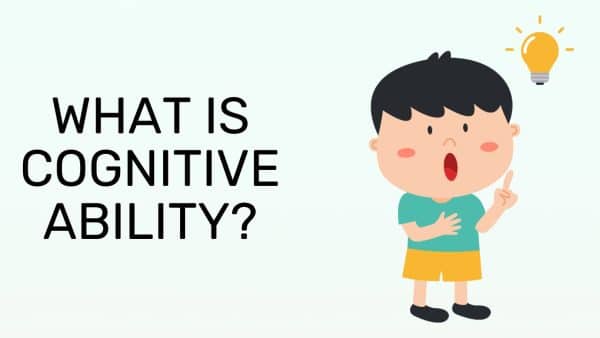Cognitive ability refers to how well a person’s brain works to help them think, learn, remember, and solve problems. It’s about using mental skills like attention, memory, reasoning, and planning.

Cognitive ability refers to how well a person’s brain works to help them think, learn, remember, and solve problems. It’s about using mental skills like attention, memory, reasoning, and planning.

How does cognitive ability develop?
Cognitive ability typically develops over time through a combination of genetic factors, environment, and experience. Environmental factors such as education, socioeconomic status, and health can influence cognitive development.
What is the relationship between cognitive ability and intelligence?
Cognitive ability is a component of intelligence, but it is not synonymous with it. Intelligence also includes other factors such as emotional intelligence and social intelligence.
How does cognitive ability affect daily life?
Cognitive ability can greatly impact daily life by affecting a person’s ability to learn, work, and make decisions. It can also impact a person’s relationships and overall well-being. Thus, it’s important to maintain and improve cognitive ability throughout one’s life.
Cognitive ability encompasses the various mental processes and skills involved in acquiring knowledge, manipulating information, and reasoning. It includes aptitudes such as perception, attention, memory, language, problem-solving, decision-making, and learning. Individual differences in cognitive abilities are influenced by both genetic and environmental factors. Children with certain developmental disabilities may have cognitive impairments that affect their intellectual functioning and adaptive behaviors.
Cognitive ability is a fascinating aspect of human functioning that influences various aspects of our lives. Here’s how cognitive ability works:
| Cognitive Function | Description |
|---|---|
| Information Processing | Cognitive ability involves our brain’s capacity to receive, interpret, and manipulate information. |
| Attention | It enables us to focus on specific stimuli while filtering out distractions. |
| Problem-Solving | Cognitive ability allows us to analyze situations, generate solutions, and make decisions. |
| Memory | It involves the storage and retrieval of information, facilitating learning and knowledge retention. |
| Decision-Making | Cognitive ability helps us weigh options, consider consequences, and choose the most appropriate course of action. |
| Language Processing | It enables us to comprehend and produce language, facilitating communication. |
| Learning | Cognitive ability aids in acquiring new knowledge, skills, and understanding. |
| Creativity | It influences our ability to think innovatively, generate ideas, and solve complex problems. |
Understanding how these aspects work together can empower us to enhance our cognitive abilities and optimize our daily functioning.
This post was originally published on Feb. 6, 2023. It was updated on April 18, 2024.